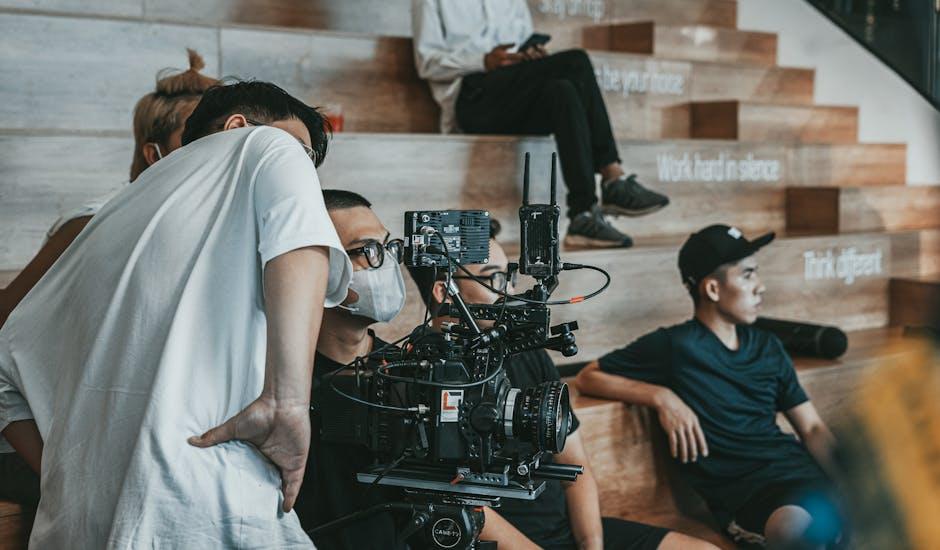In an era where blockbuster franchises and high-budget spectacles dominate the silver screen, the transformative vision of indie directors often goes unnoticed by the mainstream audience. Yet, it is within this realm of independent filmmaking that the true evolution of modern cinema is quietly, but powerfully, unfolding. One such trailblazer is [Director’s Name], whose innovative approach to storytelling and filmmaking is reshaping the landscape of contemporary cinema. With a unique blend of artistic integrity, technological prowess, and an unyielding commitment to authentic narratives, [Director’s Name] is not merely creating films; they are pioneering a new paradigm that challenges conventional norms and redefines the cinematic experience. This article delves into how [Director’s Name]’s groundbreaking work is influencing the industry, inspiring a new generation of filmmakers, and heralding a renaissance in film that promises to expand the boundaries of what cinema can achieve.
Innovative Storytelling Techniques That Resonate with Audiences
In the realm of contemporary cinema, this indie director has pioneered several innovative storytelling techniques that have captivated audiences worldwide. One such method is the use of non-linear narratives, which break away from traditional chronological storytelling to create a more immersive and engaging experience. By weaving together past, present, and future events, these films invite viewers to piece together the story themselves, fostering a deeper connection and a sense of discovery.
Additionally, the director employs multi-perspective storytelling to present the same event from various characters’ viewpoints. This technique not only adds layers of complexity to the narrative but also enhances audience empathy by allowing them to understand different characters’ motivations and emotions. The use of visual symbolism and minimalistic dialogue further amplifies the impact, encouraging viewers to interpret the story through subtle cues and visual metaphors. These groundbreaking approaches are not just altering the landscape of modern cinema; they are redefining the way stories are told and experienced.

Harnessing the Power of Visual Aesthetics to Evoke Emotion
In a world where visual storytelling reigns supreme, this indie director leverages visual aesthetics to create an emotional tapestry that resonates deeply with audiences. By meticulously crafting each frame, they ensure that every color, texture, and shadow serves a purpose beyond mere aesthetics. This approach fosters a profound connection between the viewer and the narrative, transcending traditional storytelling methods. The director’s unique vision employs a blend of contemporary techniques and timeless artistry to elicit emotions that linger long after the credits roll.
- Color Palettes: Each scene is carefully color-graded to evoke specific emotions, from the warm hues of nostalgia to the cold tones of despair.
- Symbolic Imagery: Recurring motifs and symbols are seamlessly woven into the visual fabric, providing layers of meaning that invite deeper interpretation.
- Lighting Techniques: The strategic use of light and shadow not only enhances the mood but also underscores thematic elements, making the invisible visible.
- Set Design: Every prop and backdrop is selected with intention, contributing to the story’s emotional and psychological depth.
This meticulous attention to detail underscores the director’s belief that visual aesthetics are not just supplementary but integral to the emotional impact of a film. By pushing the boundaries of how stories are visually told, they are indeed changing the face of modern cinema.

Creating Authentic Characters that Break Stereotypes
In a landscape often dominated by predictable archetypes, this indie director is pushing the envelope by crafting authentic characters that defy conventional norms. By delving deep into the complexities of human nature, the director’s approach involves:
- Multifaceted Backgrounds: Characters are given rich, diverse backstories that provide context and depth, making them more relatable and real.
- Flawed Yet Relatable Personas: Rather than portraying idealized versions of people, the characters are shown with their flaws and struggles, making their journeys more compelling.
- Subverting Expectations: The director intentionally avoids cliched tropes, presenting characters in ways that challenge audience preconceptions and promote a broader understanding of human experience.
This nuanced character development not only enriches the storytelling but also contributes to a more inclusive and representative cinematic world, proving that diversity in character design can lead to more engaging and thought-provoking narratives.

Building a Collaborative Creative Environment for Maximum Impact
In the heart of this indie director’s approach lies a profound belief in the power of collaborative creativity. By fostering an environment where every team member, from the cinematographer to the sound designer, feels valued and heard, the director has managed to unlock unprecedented levels of innovation and synergy. This inclusive atmosphere doesn’t just encourage participation; it actively nurtures a culture of shared ownership and mutual respect, leading to groundbreaking cinematic experiences.
- Open Dialogue: Regular brainstorming sessions and open forums allow for the free flow of ideas, ensuring that even the most unconventional thoughts are given a platform.
- Shared Vision: By clearly articulating the project’s goals and thematic essence, the director ensures that everyone is aligned and working towards a common objective.
- Empowerment: Team members are encouraged to take creative risks and contribute beyond their traditional roles, fostering a sense of personal investment in the project’s success.
These strategies have not only resulted in films that are visually and narratively compelling but have also set a new standard for how modern cinema can be produced. By placing collaboration at the forefront, this indie director is reshaping the filmmaking landscape, proving that when creativity is democratized, the possibilities are truly limitless.































